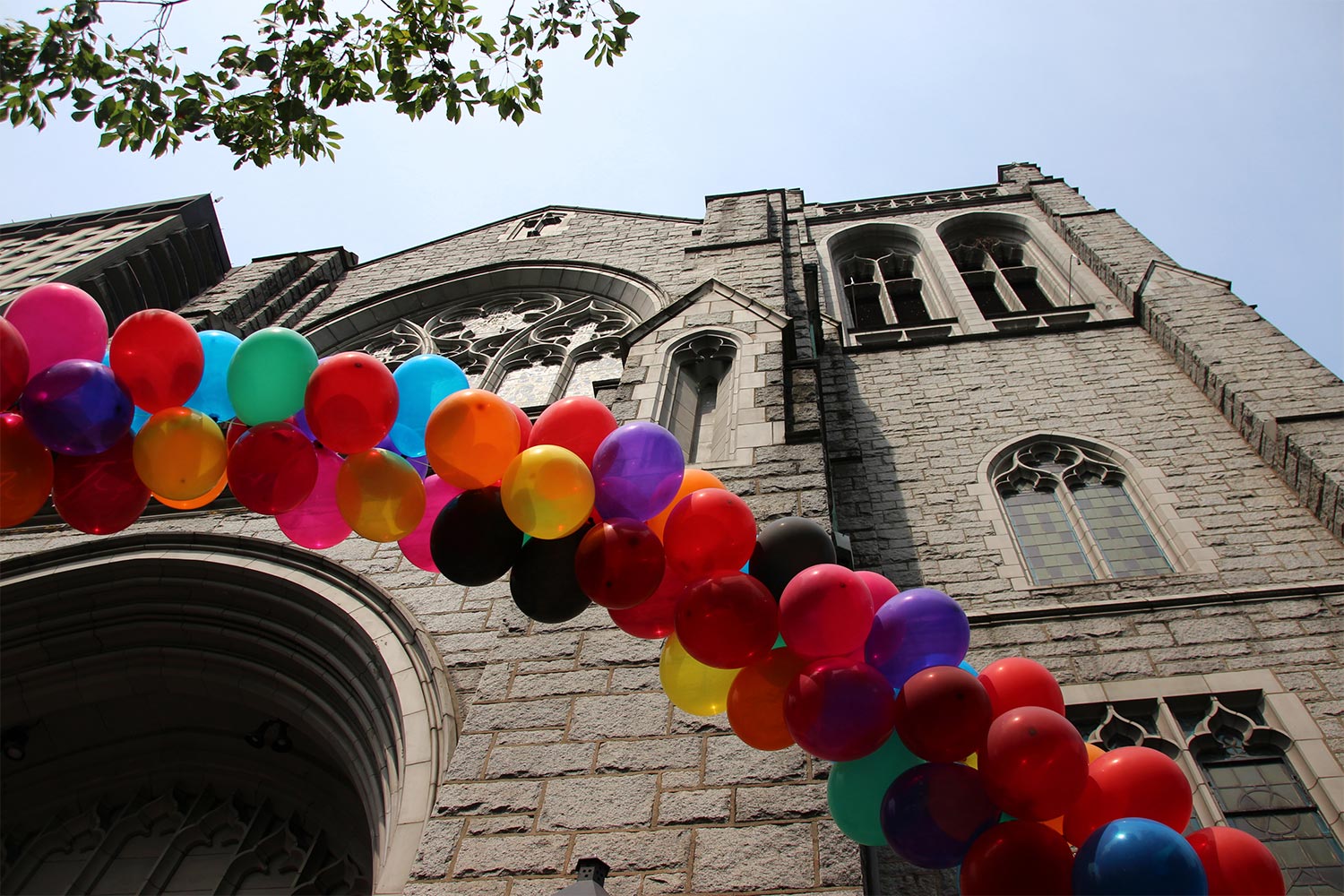Historically, many conservative interpretations of faith have encouraged the religious community to treat LGBTQ+ people harshly and unfavorably. This has led to a gross disconnect for many queer folks who have felt they had to abandon their faith to be fully and authentically who they have been created to be in society.
Some denominations, such as Reform Judaism and the United Church of Christ, have been actively working to heal that disconnect by becoming open and affirming of their LGBTQ+ members. In nearly every other religious denomination, there are support groups that have walked boldly into more accurate interpretations over LGBTQ+ people. As our world continues to shift to be more accepting of LGBTQ+ people, these denominations are starting to become LGBTQ+-inclusive as they are realizing that they also want to find themselves on the right side of history and the arc of justice. This changing of the guard offers hope that we might interrupt the narrative that LGBTQ+ folks can only be on the margins of the faith community or hide within its walls in a leather-bound, like the bible, closet.
In the fall of 2020, amid multiple pandemics, particularly a racial and health crisis in this country, I was elected to serve as the first African American, openly gay, executive conference minister of the Southern New England Conference of the United Church of Christ. In this role, I was called to serve the historic roots of faith in this country. Most of our churches beautifully line the town greens all over Connecticut and New England, totaling more than 600 churches, 1,400 authorized ministers, and about 120,000 members. My election moved forward with an election vote of more than 99 percent, with delegates from a wide array of the Christian experience. It was truly a historic moment I could not have imagined happening in my life as a clergy person; especially for someone who was under 40. As I celebrated, I also queried “why did my arrival take hundreds of years? How is it possible that in 2020 I could still be a “first”?
The reality of this watershed moment was more troubling when I realized that “according to a recent report from the UCLA School of Law’s Williams Institute, almost half of LGBTQ+ adults in the United States are religious”. In addition, these 5.3 million religious LGBTQ+ adults in America “are found across the age spectrum, in every racial-ethnic group, among married and single people, among those who are parenting, and among rural and urban dwellers.” This impressed upon me missionally that as the queer community we must reclaim our faith traditions as a social justice imperative, not staying on the sidelines as a guest but as a critical component of how we as humans experience deep relationship with a higher power of our own understanding.
The truth is that the queer community has been shaping faith in this country for generations; as theologians, musicians, and the financiers of some of our largest faith communities. Inherent in queer identity is an invitation to blur the lines, welcome more people to the table, and stretch the margins that welcome some in and push others out. It is in the queer community that people are offered hope to be themselves, to be fully seen, and fully loved just as they are! This is and should be the preeminent mission of faith. What is the purpose of a faith that doesn’t make you fundamentally a better human?
If the queer community embodies this ethos, then it’s time to help the “church” to do the same. I call on these 5.3 million of my siblings, who can change the conversation about faith in this country, to rise in pulpits, faith community councils, denominational boards, and reclaim the story of LGBT+ people of faith. Rise up within the walls of their churches, and then help break those walls down. Bring faith back to the streets, back to the people, back to its first love where there are no “haves” and “have” nots.
This level of activism is centered around access, so even if a person is not spiritual or religious by nature, they still have a place in demanding, supporting, and fighting for religious freedom and diversity for ALL. I feel compelled to make it so that no LGBTQ+ person must live thinking they are rejected or abandoned by God because that lie couldn’t be any further from the truth.
Will you join me? The harvest is ripe, but the laborers are few.









More Stories
Pride, Health, and Trust: Navigating Connecticut’s Diverse Tapestry
Where We Stand
A note from Governor Ned Lamont